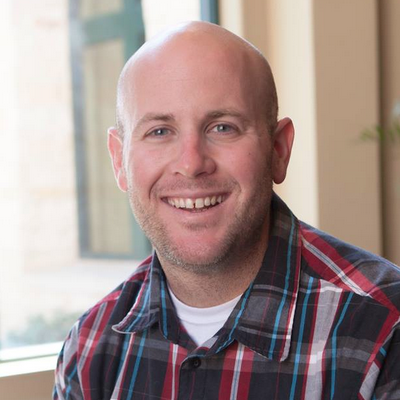by David Hanson | Feb 19, 2015 | On the Job, The Youth Ministry Blog
I used to think of being the best youth pastor as if I am feeding a 4 headed monster. Like the huge dog in Harry Potter except with an extra head! Any of these heads could bite you or lick you depending on how much you are feeding them.

However, I’ve come to realize that being a successful youth pastor is more like playing a never-ending version of the balloon game. You know, the balloon game where you have to keep a certain numbers of balloons in the air at all times and the longest time wins. So you are running around the room hitting these things in the air only to notice another one floating slowly to the ground and so you make sure you run over to that one.
If you wanna be one a top-notch youth pastor you obviously need to be right with God and have a personal prayer life that is growing, developing, modeling, and pointing yourself and others towards Christ. BUT I want to focus in this post on the systematic part of the youth pastor JOB. Therefore, I am going to assume the above is already your foundation and to be a top-notch youth pastor beyond that it is to juggle these 4 balloons in the air.
Students – This one comes natural to most youth pastors. They feel called to youth and to help youth grow closer to God. They are contacting, discipling, mentoring, encouraging, counseling, etc. with youth. It is probably the balloon we are best at keeping in the air.
Leaders – This one for some youth pastors is a walk in the park and for others it’s like pulling teeth. You job as a youth pastor is to recruit leaders and then to train your leaders and finally you have to retain your leaders. It’s this ongoing cycle of finding, developing, and maintaining. If you are great at recruiting a leader but can’t develop them, you won’t be able to retain them. If you are great at developing leaders and retaining leaders but can’t recruit them, you may find your youth ministry stuck sooner rather than later.
Parents – More of you stink at this balloon than those of you that are great. We tend to neglect this balloon and sometimes may even play the game without it in the air and pretend it was never part of the game. I hate to tell you this but relationships with parents is part of your job. You need to communicate with them and you need to come alongside them. And the crazy part about working alongside parents- it can actually be really rewarding for you as a person and a youth pastor!
Staff – For those of you in a smaller church, this should be easier. Those that actually have a church office, this should be easier. Staff relations is also part of your job. You aren’t an island, nor should you be. You need to work with your church as part of the larger mission and vision of your church. Communicate with your lead pastor, don’t mess with your finance team, help your secretaries set up the calendar and the bulletin with your youth ministry stuff. It’s all part of the gig.
You get hired as a youth pastor and the balloons get tossed up in the air and the game begins. You have to keep all these balloons in the air. And at no point will all of them be at the ceiling, right when you work hard on one area you may see the other drifting down. You will constantly be adjusting to keep them in the air and that’s just part of the job.
The ineffective youth pastors will burn out and will leave the ministry because keeping these balloons in the air is too much work. OR one of these balloons got you out of the game. The parents decided you weren’t helping them enough, your pastor realized you are an island, the youth won’t come because you don’t relate to them, you have no leaders and thus can’t do anything. 2 years is the average time a youth pastor is at a church and my assumption is it is because of this balloon game. 2 years is probably the amount of time you either can’t keep all the balloons up or the amount of time it takes someone to realize you have been playing but you’re actually out.
The average youth pastors will drop a balloon every now and then (usually the same ones every time) but will quickly correct the problem. They do a decent job.
The really effective youth pastors will be great at keeping all these in the air. There will be times where it gets close to the ground but they kick it up just in time. Maybe they have a sign by their computer that reminds them of these balloons. Maybe they just have the instincts of where all the balloons are and can get there in time. Or who knows how they do it, but they do, and that’s what makes them so effective.
This isn’t a post that should make you busier but more aware and know that it this is all built on the foundation of prayer and your personal walk with God.
Go write these things on 4 balloons and go play in your activity area. Tell your senior pastor it’s your homework. Have fun out there!
[guestpost]
Mark Knight is a Children’s and Youth Pastor in Tacoma, WA. He leads a team of directors that cover ministry from birth through young adults. He graduated from Northwest University with a double-major in Youth Ministry and Biblical Studies. Mark is married to his amazing wife, Lindsay, and they are expecting their first child in December.
[/guestpost]
by David Hanson | Feb 18, 2015 | On the Job, The Youth Ministry Blog
Originally I was planning on posting part 3 of the Disease Within Student Ministry, but instead I have felt a pulling from God to write about the beheading of the 21 Coptic Christians in Libya. The recent murder of our 21 brothers is no more evil than the daily persecution that our fellow overseas brothers and sisters suffer through on a regular basis, but still there is something about this that hits a little harder; at least for me that’s the case.

“And he opened his mouth and taught them, saying: “Blessed are the poor in spirit, for theirs is the kingdom of heaven. “Blessed are those who mourn, for they shall be comforted. “Blessed are the meek, for they shall inherit the earth. “Blessed are those who hunger and thirst for righteousness, for they shall be satisfied. “Blessed are the merciful, for they shall receive mercy. “Blessed are the pure in heart, for they shall see God. “Blessed are the peacemakers, for they shall be called sons of God. “Blessed are those who are persecuted for righteousness’ sake, for theirs is the kingdom of heaven. “Blessed are you when others revile you and persecute you and utter all kinds of evil against you falsely on my account. Rejoice and be glad, for your reward is great in heaven, for so they persecuted the prophets who were before you.” – Matthew 5:2-11
Maybe it hit me a little harder because one of the first things I started to hear from fellow believers is how blessed we are that we can attend church in complete safety. When I heard these statements I was immediately filled with sorrow. It’s heartbreaking that many associate God’s blessings chiefly with convenience, comfort, safety, and wealth. How sad it is that their enjoyment of God is limited to how they experience life and this world. I thank God that Jesus Christ is the supreme blessing to us, and that the life He offers is an overflowing fountain of reconciliation and hope.
“…and when they had called in the apostles, they beat them and charged them not to speak in the name of Jesus, and let them go. Then they left the presence of the council, rejoicing that they were counted worthy to suffer dishonor for the name. And every day, in the temple and from house to house, they did not cease teaching and preaching that the Christ is Jesus.” – Acts 5:40-42
Or maybe it is because the witness of our Coptic brothers is inspiring and convicting all at once. I am convicted by the fact that as I was reading the news of their beheadings, I was sipping on coffee thinking about how much I myself cling to convenience. I can’t tell you how many times I have had to wrestle with myself to meet someone at a time or location that was not convenient for me. This is especially the case when I know that the meeting might require me to expend more emotional energy than I want to. Why would God want to use a selfish man like me? Only He knows, but there is inspiration in how God works through us.
I am inspired by Gods grace and the works of His Spirit as witnessed by our Coptic brothers. Inspired to see the hope of Jesus Christ lead fellow disciples to the revelation of “for to me to live is Christ, and to die is gain.” Oh how great are the works of our King within us to bring us to such a reality!
“And he said to all, “If anyone would come after me, let him deny himself and take up his cross daily and follow me. For whoever would save his life will lose it, but whoever loses his life for my sake will save it. For what does it profit a man if he gains the whole world and loses or forfeits himself? For whoever is ashamed of me and of my words, of him will the Son of Man be ashamed when he comes in his glory and the glory of the Father and of the holy angels. But I tell you truly, there are some standing here who will not taste death until they see the kingdom of God.” – Luke 9:23-27
Maybe it hit a little harder because later that day I spent over one hour on the phone with a college student helping her make sense of these murders and her personal purpose in life as a college student. She just couldn’t understand how she could do so little for God’s Kingdom while fellow brothers and sisters were laying down their lives for their faith. For a 19 year old who is studying to be Christian Counselor while dedicating her free time to serve on campus and student ministries, that’s a pretty weighty question to engage in. Her passion to see God glorified and others restored in His glory is humbling.
“If the world hates you, know that it has hated me before it hated you. If you were of the world, the world would love you as its own; but because you are not of the world, but I chose you out of the world, therefore the world hates you. Remember the word that I said to you: ‘A servant is not greater than his master.’ If they persecuted me, they will also persecute you. If they kept my word, they will also keep yours. But all these things they will do to you on account of my name, because they do not know him who sent me.” – John 15:18-21
I want to spend some time teaching my students about the witness our Coptic brothers gave us. I hope to speak the truth of the Gospel into their hearts and minds. I pray that they would come to an understanding of how great our God is, and that His greatness is not dependent upon the condition of their lives. There are very real evils and sufferings going on everyday. It wasn’t the evil of the beheading or the suffering of our Coptic brothers that hit me. It was the inspiring witness they gave me, and the opportunity that I am afforded to minister out of it.
[guestpost]
Ben Fawcett is a six year student ministry veteran, who is currently serving as the Associate Student Pastor at LifePoint Church in Plano, Texas. He is currently enjoying typing this bio out in third person, and aspires to one day speak in only third person.
[/guestpost]
by David Hanson | Feb 17, 2015 | On the Job, Podcast, The Youth Ministry Blog
One of the hardest things in Youth Ministry is knowing where to set boundaries. If you are like me, then you wish that you had the solution for everything. You wish your connection with God and your ability to point people toward their creator was enough to cure any ill. But it’s not enough…
Now don’t get me wrong. Jesus is enough, and He is all we need. But YOU are not Jesus. YOU cannot cure every ill or problem that your students and their parents will encounter. Students and their parents will walk through seasons of crisis that you are not equipped to handle.
For this reason, it is wise to know when and where to refer students and families walking through a difficult season in life. These crisis moments might include thoughts of suicide, depression, self-harm, eating disorders, divorce, sexual, substance or physical abuse. This list could go on and on.
As a Youth Pastor, your role is not to fix these problems. Your role is to faithfully walk with students and families through the good times and the bad, pointing them to Jesus every chance you get.
This is why you need boundaries.
Boundaries will help:
- your students get the help they need.
- you know when to refer students or parents to professionals.
- you stay out of legal trouble.
- you focus on your role as a spiritual guide.
- you be faithful stewards of God’s flock.
For an EXCELLENT resource on how to set boundaries and how to be prepared, go buy and read The Youth Worker’s Guide to Helping Teenagers in Crisis.
What other resources have you found helpful in being prepared? Comment below:
[guestpost]
David Hanson: Texas native, Texas Tech Red Raider, M.Div. at Truett Seminary, husband to Ashley, father to Ava & Ben, Student Pastor at LifePoint Church in Plano, Tx, table tennis (ping-pong) extraordinaire, addicted to coffee. For anything else…you’ll just have to ask.
[/guestpost]
by David Hanson | Feb 12, 2015 | On the Job, The Youth Ministry Blog
Middle schoolers are real people. I know that may shock some readers, but it’s true. I’ve actually heard grown adults call middle schoolers “pre-people”. Besides being incredibly demeaning, it implies that young teens aren’t dealing with real life issues yet. Part of this stems from the difficulty middle schoolers have with communicating what’s going on underneath the surface.

I thought I would let you into my world to show you that middle schoolers are facing really difficult situations. Over the past month I’ve become aware of a number of issues that middle schoolers I know are dealing with right now.
Homosexuality – We have a student who just came out to the world via social media. They stopped coming to our group a few weeks ago just before it became public. Our leadership team is figuring out how to show the love of Christ while helping them find their true identity in Jesus.
Self-Harm – I know of multiple students, from great families by the way, who are expressing their emotional struggles by harming themselves. We are walking with the parents to reinforce constructive ways of dealing with their emotions and bringing hope through the Gospel.
Drugs/alcohol – I have students who get offered marijuana EVERY single day at school. Other students have been caught sneaking alcohol at a friends house. One teacher from a local middle school tells me all the time that a handful of students regularly show up to class drunk. Our students are self-medicating to escape and they have access to whatever substance they want.
Pornography – Most teens are exposed to pornography in the middle school years and addiction is common. In addition, I know of students who have consumed pornography that is violent in nature. My heart breaks for those who’s view of sexuality is so distorted.
Family roles – There are students who have to play the parent role for their families because mom or dad can’t or won’t act like the grown-up. They live in a dual world where schools treat them like kids and yet they have to perform as adults at home.
I could really go on and on. The point is this. Your middle schoolers are hurting NOW. They are facing real life NOW. The more you understand this the less satisfied you’ll be with playing babysitter. Middle schoolers need adults who will shine the light of Christ into the convoluted, dark, broken world they are living in every single day.
It all starts with listening. Start asking probing questions to your middle schoolers and listen for the subtle and not-so-subtle clues that show you that there is more going on. After all, young teens are real people, too.
[guestpost]
Kevin Libick is a Middle School Pastor living in Fort Worth, TX with his wife Kara and her two cats. He is a novice banjo picker and expert Hawaiian food eater. Kevin loves to connect with other youth workers and equip them to live out their calling in God’s Kingdom. Kevin loves to connect with and empower youth workers. Connect with Kevin on Twitter: @kevinlibick
[/guestpost]
by David Hanson | Feb 11, 2015 | On the Job, The Youth Ministry Blog
In last weeks post (The Disease Within Student Ministry) I discussed an unnamed disease that has infected many of our ministries. The disease uses a subtle shift of our focus to infiltrate us, and now it’s symptoms have started to manifest at the expense of our students. Over the next few weeks we will place these symptoms under a microscope to observe their effects and discuss possible remedies.

Symptom 1: The focus of raising-up and building student leaders
I listed this as the first symptom because it was the first one that God made me aware of in my own ministry. In Fusion Student Ministry, stewardship is one of the filters that we run every decision through. It is part of the ministry system that we developed to use as a guardrail against our own selfish ambitions. So, the day the Lord rocked me with the conviction that I had started to focus on building leaders and not disciples was equally surprising to me as it was heart breaking.
For as in one body we have many members, and the members do not all have the same function, so we, though many, are one body in Christ, and individually members one of another. Having gifts that differ according to the grace given to us, let us use them: if prophecy, in proportion to our faith; if service, in our serving; the one who teaches, in his teaching; the one who exhorts, in his exhortation; the one who contributes, in generosity; the one who leads, with zeal; the one who does acts of mercy, with cheerfulness. –Romans 12:4-8
One of the problems in focusing on raising-up and building leaders is that we emphasize one gift over another. Remember the commission is to make fully functioning disciples of Jesus Christ who in turn go make other fully functioning disciples of Jesus Christ. A natural part of raising leaders is to lift them up as models within our ministries. This can cripple another student’s desire to pursue Jesus Christ by making them doubt their value within His Kingdom. It can lead other students to compare themselves to the student leader, which often times leads them to a place of feeling inferior.
The hand has a different function than the foot. The eye has a different function than the ear. The knee has a different function than the big toe. Yet, all parts are valued and appreciated. Yes, let’s continue to encourage the growth of leaders, but not at the expense of our other students that are gifted differently. We need to focus on Jesus Christ, His great works, His good will, and our identity as His disciples. Doing this will enable us to better encourage celebrating the diversity of Gods church and our individual roles within it as His beloved children.
A dispute also arose among them, as to which of them was to be regarded as the greatest. And he said to them, “The kings of the Gentiles exercise lordship over them, and those in authority over them are called benefactors. But not so with you. Rather, let the greatest among you become as the youngest, and the leader as one who serves. –Luke 22:24-26
Another problem is that we find ourselves building leaders of worldly principles instead of Kingdom principles. Students often associate leadership with perks, prestige, and greatness. These principles are what the world teaches us, and it takes the revelations of God and the sanctification of His Spirit to break that paradigm. Even so, we can sometimes forget to teach that Kingdom driven leadership is found in serving others with humility, compassion, and mercy. We must stop teaching that leadership is about publicly modeling ministry works and Bible knowledge. We have to get back to teaching about who God is and what it looks like to pick up our crosses and follow Him.
There is so much more to this symptom, I will not even go on to speak of the added stress that we often place on the student leader, or what happens when one of these students fall. Instead, I will remind you that the shift is subtle, and it comes from a place of the best intentions, but it can have retarding effects on our students desire to pursue Jesus Christ. May God bless and sanctify you all.
[guestpost]
Ben Fawcett is a six year student ministry veteran, who is currently serving as the Associate Student Pastor at LifePoint Church in Plano, Texas. He is currently enjoying typing this bio out in third person, and aspires to one day speak in only third person.
[/guestpost]
by David Hanson | Feb 4, 2015 | On the Job, The Youth Ministry Blog
One of the things all Student Ministries deal with is constant change. Every year we graduate a class of seniors and inherit a new class of sixth (or seventh) graders. The reality is we lose some of our more mature disciples, while adding to the numbers of our more immature disciples.

So that would be addition by subtraction…. my bad, I meant subtraction by addition. This is the constant cycle of turnover that we face as student disciple makers, and as the cycle turns it brings a subtle shift to our focus. We position a new class of seniors to take the reins of student leadership, and seek to integrate a new group of sixth graders into our ministry.
In essence we focus on leadership development, and student congregation retention. That makes sense too, because we want the older student leaders to model a mature faith to the younger ones, while trying to make sure we retain all our newbies. After all, today’s newbies are tomorrow’s student leaders within our ministries. So we seek to establish a cycle of continuous leadership development and number retention/growth.
This subtle shift of focus can even occur within the most structured Student Ministry, but I think it is in this ever so subtle shift of focus that a disease has infiltrated us. This disease has distracted us from our mission of seeing God glorified and enjoyed in the lives of our students and youth workers. It’s a disease that consumes every facet of Student Ministries, which includes our volunteer youth workers, how/what we teach, the execution of our small groups, and most importantly our students understanding of the supremacy of Jesus Christ.
I don’t have a name for this disease, but I know its symptoms. The symptoms are all concerned with how or what we focus on. Focus requires attention, applied energy, and an investment of time. What you focus on and how you focus on it will directly impact your students and volunteer youth workers, which in return will create your culture.
Here are some of the symptoms I have observed:
Symptom 1: The focus of raising-up and building student leaders
Do we want student leaders? Yes, we absolutely want them. Are we called to make leaders? No, we are called to make disciples of Jesus Christ that operate out of their faith in who He is and His great works.
Symptom 2: The focus of retaining students
Do we want all of our students along with their family and friends to come to know, love, and worship the Lord God? Yes, we desperately desire that. So shouldn’t we focus on doing everything we can to make sure the students don’t just return but return with their friends? No, we should focus on making disciples that go into their peer groups to make disciples.
Symptom 3: The focus of developing behaviors
Do we want our students to behave in a manner that reflects their faith? Yes, behavior is important. Then shouldn’t we teach behavior based lessons? No, the basis of all our teachings should be God, His works, and our new found identity in Jesus Christ.
Symptom 4: The focus of placing students first
Wait, we are a student ministry aren’t we? Absolutely, we love our students and hope to see them saved and sanctified. Then we should place our students first in our ministries? Absolutely not, we are disciples of Jesus Christ, and therefore He always comes first.
Remember the shift is subtle, and it grows out the best of intentions, but it can have retarding effects on our students desire to pursue Jesus Christ. In the coming posts I will further discuss my observations of these symptoms, their effect on our ministries, the Word of God that my views flow from, and what I think we can do to overcome this disease.
[guestpost]
Ben Fawcett is a six year student ministry veteran, who is currently serving as the Associate Student Pastor at LifePoint Church in Plano, Texas. He is currently enjoying typing this bio out in third person, and aspires to one day speak in only third person.
[/guestpost]









